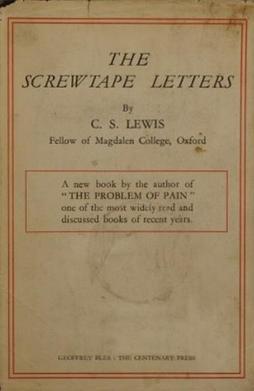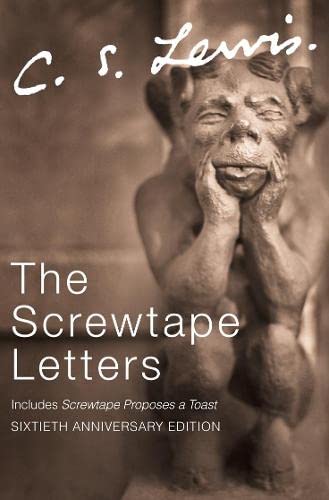I must confess something here at the outset: I love Country Music. I love the twang, the history, the storytelling, and even the celebration of Americana. (I even love it when it comes from Canadians!) Of course, this wasn’t always the case. I used to hate Country like most people claim to do, but once you marry a girl from Texas, little bits of country just start to creep in all over your life. As my wife says, “You can take the girl out of Texas, but you can’t take the Texas out of the girl.” I say, “Bring it on.” Other times, I say “Y’all.”
So, when I heard that there was controversy around a new country song, Jason Aldean’s “Try That In a Small Town,” I had to give it a listen—not as a hater of Country, but as someone who was mildly interested in both the kerfuffle and the genre. What I found, when I listened to the song, disturbed me. But it was not, as far as I can tell, what disturbed most people.
The song is standard enough—even sub-par, as far as Country songs go. Aldean croons about a variety of disquieting things that are happening in the world, shows footage of various “liberal” protests, and then returns to the refrain “try that in a small town.” The message is simple enough—liberal antics won’t work in middle America. A simplistic, even ham-fisted message; but then again, so is a lot of Country messaging, so we won’t hold that against it.
On the surface, the message of the song is a manifestation of an old and somewhat tired cliché: that the rural is superior to the urban. Cities are crowded, crime-infested, welfare driven places of wicked dehumanization, while the country is an idyllic, spacious, safe place bolstered by simple values, good people, and honest work. Half of my family comes from one of those small towns where everybody knows everybody, and Aunt Maudine keeps watch over the neighbourhood from the comfort of her rocking chair, sipping sweet tea and shucking corn while locusts screech in the background. Nothing gets past her.
The chief controversy surrounding the song—and the reason the video has been “banned”—isn’t because of this clichéd message. It’s because, in one of the cuts of footage, the video features the Maury County Courthouse, in front of which 18-year-old Henry Choate was lynched in 1927. This is a terribly dark association. Here we are, singing about “trying those antics in a small town,” looking at an image of a courthouse famous for fostering exactly that kind of vigilante justice, in a county where some 20 black men were murdered on the basis of a very similar sentiment. If inclusion of the Maury County Courthouse footage is intentional, then the video is truly a thing of wickedness and should be condemned by all people of good heart and conscience. If it is unintentional… well, this is still a serious gaffe that should warrant, at the least, an apology, and at best should probably be re-edited.

The lynching association is pretty horrific, but it’s not the concern I want to write about today. My concern has more to do with the moral formation for which the song appears to advocate. Allow me to explain what I mean. Songs can do lots of things for us. They can help us escape, or make sense of love, make us feel peppy, help us focus, or be an occasion for creating memories with our friends. Country Music is especially known for its focus on the value of hard work, love, loss, simple faith, and even a kind of warm patriotism. Some of the best of Country makes you want to love your wife more, work harder, hang out with your friends, go to church, and be grateful for your freedom. When we listen to songs about these ‘virtues’, we find that these virtues are being planted, reinforced, and encouraged within us. This is one of the ways that music facilitates moral formation.
Aldean’s song is right in the vein of this kind of formation—but I think it’s still critical to stop and ask, “What is the emotion being formed in me?” On my accounting there are a few. Aldean is, at the outset, sympathizing with the feelings of incredulity—and even outrage—at the way the world is going. In this, he has a sympathetic ear to many in America today. This sentiment is then contrasted with the pride that many Americans feel with regard to their home-town values (whether perceived or actual). These two emotions—outrage and pride—set the stage for the hook of the song. And what is critically important to know that the sung sentiment “Try that in a small town” is punctuated by images of “good” Americans carrying firearms. In other words, the takeaway message of the song is, “Try that here and we’ll shoot you.” Outrage, pride, violent justice.
Pause and reflect more closely on this sentiment for a moment, because it’s actually very strange. The city is wicked, the countryside is virtuous. My nation should be protected. When the wickedness of the city creeps into the countryside, I should be prepared to defend it—violently, if necessary. In defense of American Values, I am prepared to do grievous bodily harm to others—even my fellow Americans. Perhaps you read those sentences and nothing stands out to you as strange about them. In your heart, there is only a straightforward, “Amen! We’ve got to stop the bad guys, no matter what!” Maybe there’s even a form of that statement that “The only thing stopping a bad guy with a gun is a good guy with a gun!” But what I would like you to see is that a song like this fuels a fantasy of justified violence under the guise of patriotism. I will purchase a firearm, and carry it with me, so that if needed I can protect someone, save the day, even be a hero. It’s my duty as an American.
In Country, more than any other genre of music, there is a profound overlap between America’s Patriotic and her Christian values. Standing for the flag and kneeling for the cross beats close to the heart of what Country Music (ostensibly) cares about. But here in Aldean’s song we are witnesses to, and participants in, a sentiment that is profoundly un-Christian. Christians should not fantasize about scenarios in which they might commit acts of violence. And I can go on to say, on the same theme, that Christians should not fantasize about scenarios in which they might commit acts of sexual intercourse, or theft, or deceit. And if a song is inviting me to fantasize about such thing, if a song lionizes activities which stand opposed to the tenets of my Christian faith, then I ought to put that song aside.
If anything, Christians should fantasize about peacemaking. What would it mean to wake up in the morning and prayerfully consider how you might end conflict, restore harmony between men and women, or even perform acts of radical forgiveness? Years ago, there was the faddish trend of “paying it forward,” where Christians committed to performing “radical acts of kindness,” usually by purchasing someone else’s coffee or MacDonald’s order. Personally, I thought that the fad was better at making you feel good than doing any actual good, but it was still better than starting your day by imagining shooting someone. Let me be explicit: carrying a firearm as a civilian in the anticipation that you might need to use it against other civilians in defense of various civic ideals is not anywhere part of Christian moral formation.
For now, Aldean will have his moment in the spotlight. In the power of the outrage machine, criticisms of the song—and its video—will fall on largely deaf ears. In time—hopefully a short one—this song will be forgotten while other, better, Country songs will come along and encourage people to be more faithful, hardworking, and attentive to life. What won’t go away so easily are those fantasies of violence—certainly not until we are forming properly Christian sentiments in their place. And while the Christian sentiments overlap so seamlessly with the Patriotic ones… let’s just say that the battle for true peace will be long and difficult.






